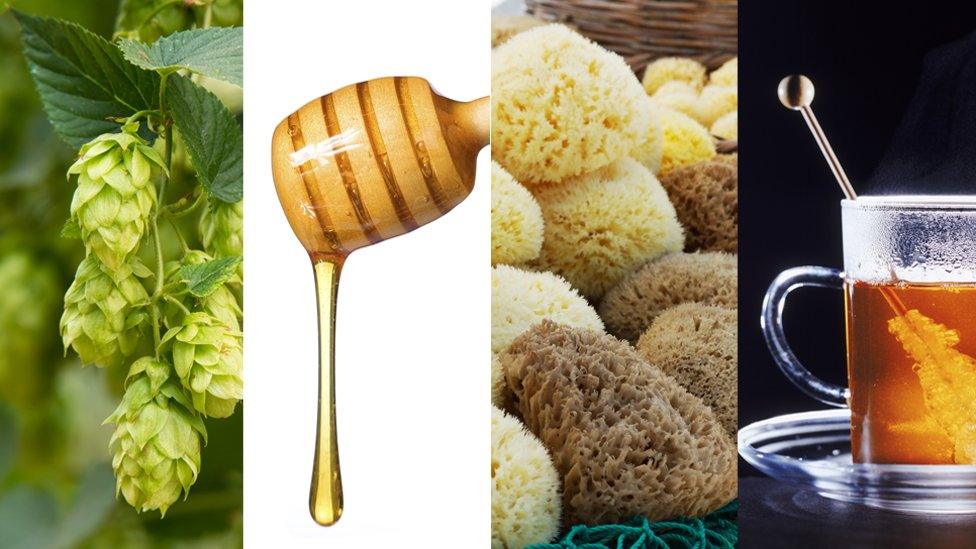Cardiff scientists look at honey as drug alternative
- Published
- comments
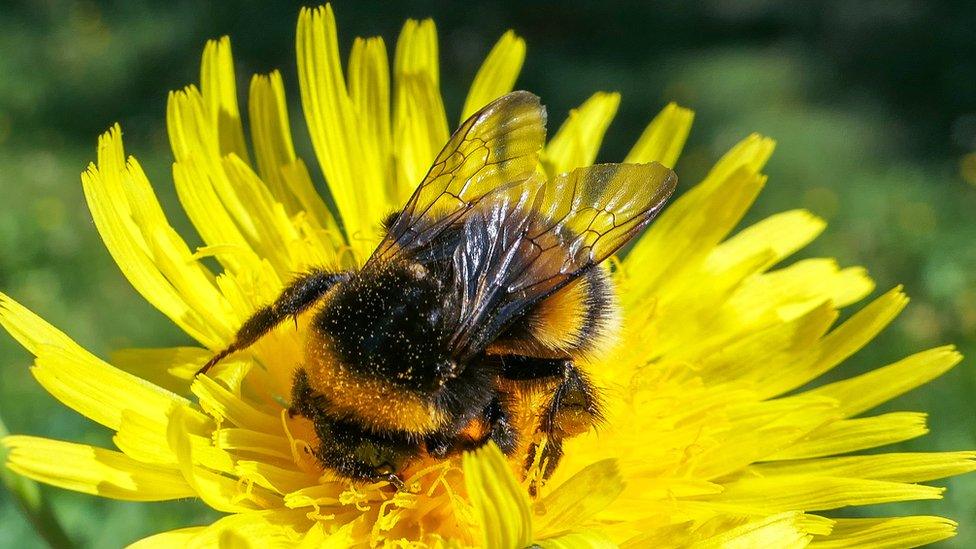
Dandelions are being examined to look for compounds that "kill bacteria and viruses"
Honey has been used for thousands of years to treat wounds, but scientists are now using it in a search for alternatives to antimicrobial drugs.
It follows concern about infections caused by bacteria resistant to antibiotics.
"We need to do something innovative, otherwise we face the scenario where we return to the pre-antibiotic stage," said a Cardiff University expert.
Antibiotic resistance is described as a major threat to global human health.
According to the largest study to date and published in the Lancet, external medical magazine, more than 1.2 million people died worldwide in 2019 as a direct result of antibiotic-resistant bacterial infections.
"We're seeing bacteria that has evolved, that is resistant to almost all antibiotics, and we are reaching the stage where the cupboard is empty," said Prof Les Baillie from the university's School of Pharmacy.
"Before antibiotics we used herbal and traditional remedies to treat diseases.
"We have gone back to these traditional remedies to see if we can learn from our ancestors."
Scientists at Cardiff are looking to see if honey has a part to play.
Traditionally, it has been used for wound healing and contains compounds which are antimicrobial.
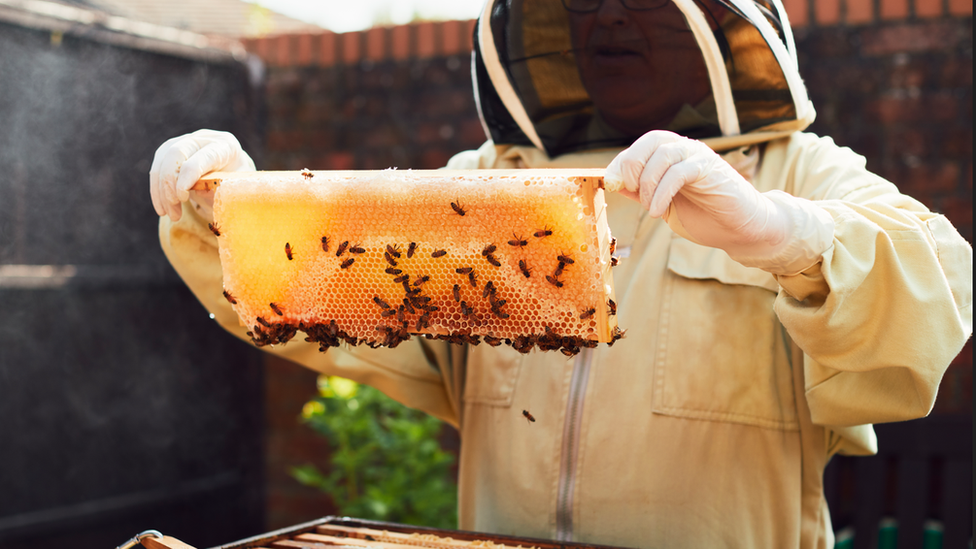
Researchers are testing various samples of honey to see which plants the bees have visited
The challenge now is to find these compounds and isolate them so that, potentially, they can lead to new remedies to deal with health problems. Researchers are currently testing various samples of honey to see which plants the bees have visited during their working lives.
Using technology, they can see if the bees went to a plant which had an antibiotic. When scientists have discovered the plant, they then analyse its compounds.
The honey, they say, works as a "drug discovery tool" in the search for new antibiotics. At the moment, they are looking closely at dandelions, as they contain compounds that "kill bacteria and viruses", according to Prof Baillie.
"They are called weeds by gardeners, but they have value, and we should be celebrating the dandelions not exterminating them," he said.
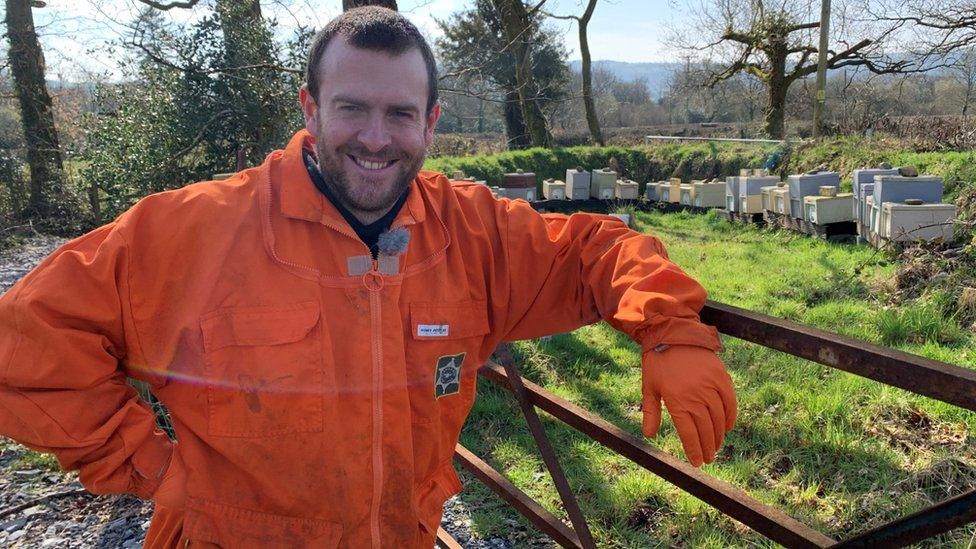
Beekeeper Gruffudd Rees: "I have been keeping bees for over 12 years and I am fully aware of how good honey is for your health"
The research at Cardiff comes as no surprise to beekeeper Gruffudd Rees, based in the Towy Valley, Carmarthenshire.
"I have been keeping bees for over 12 years and I am fully aware of how good honey is for your health," he said.
"I hear stories from people who buy from me that they use my honey to put on their wounds and sores and say that it helps to heal.
"I hear people talk about how it helps them with their hay fever as well.
"I can't prove it, but too many people tell me stories like this."
- Published20 January 2022
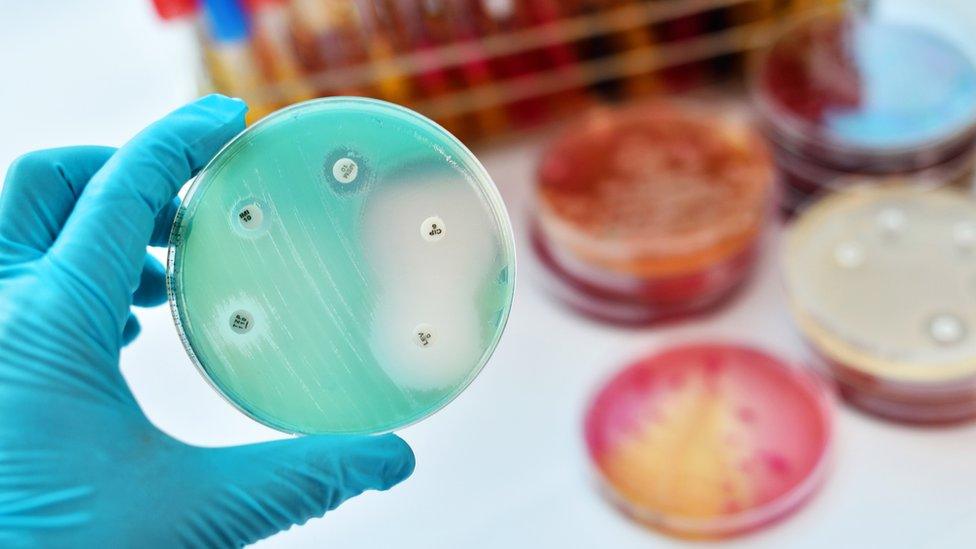
- Published10 November 2019
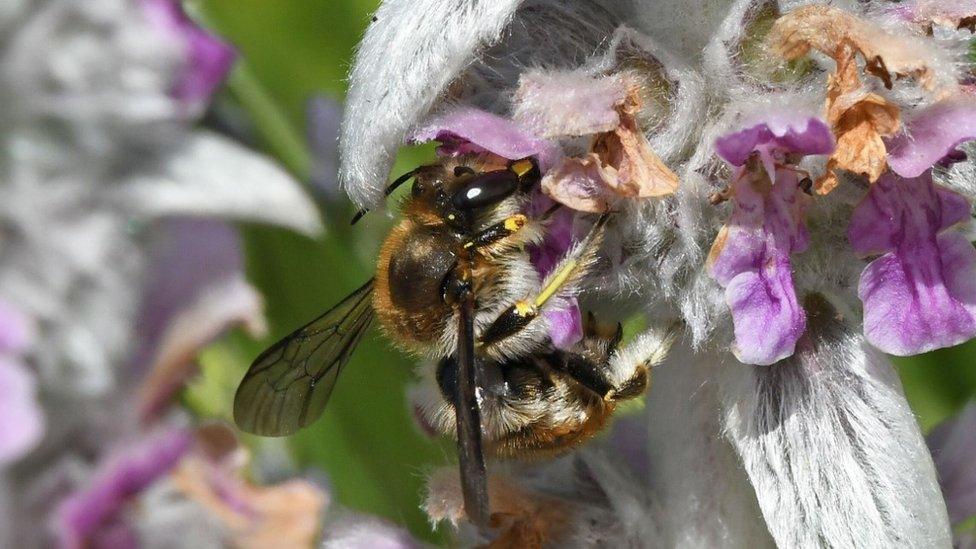
- Published6 May 2016
